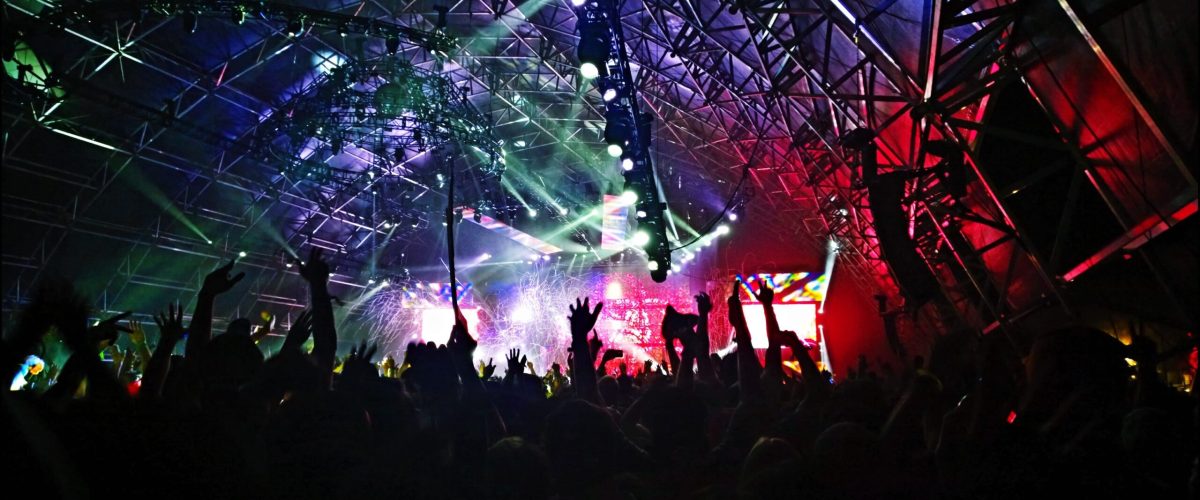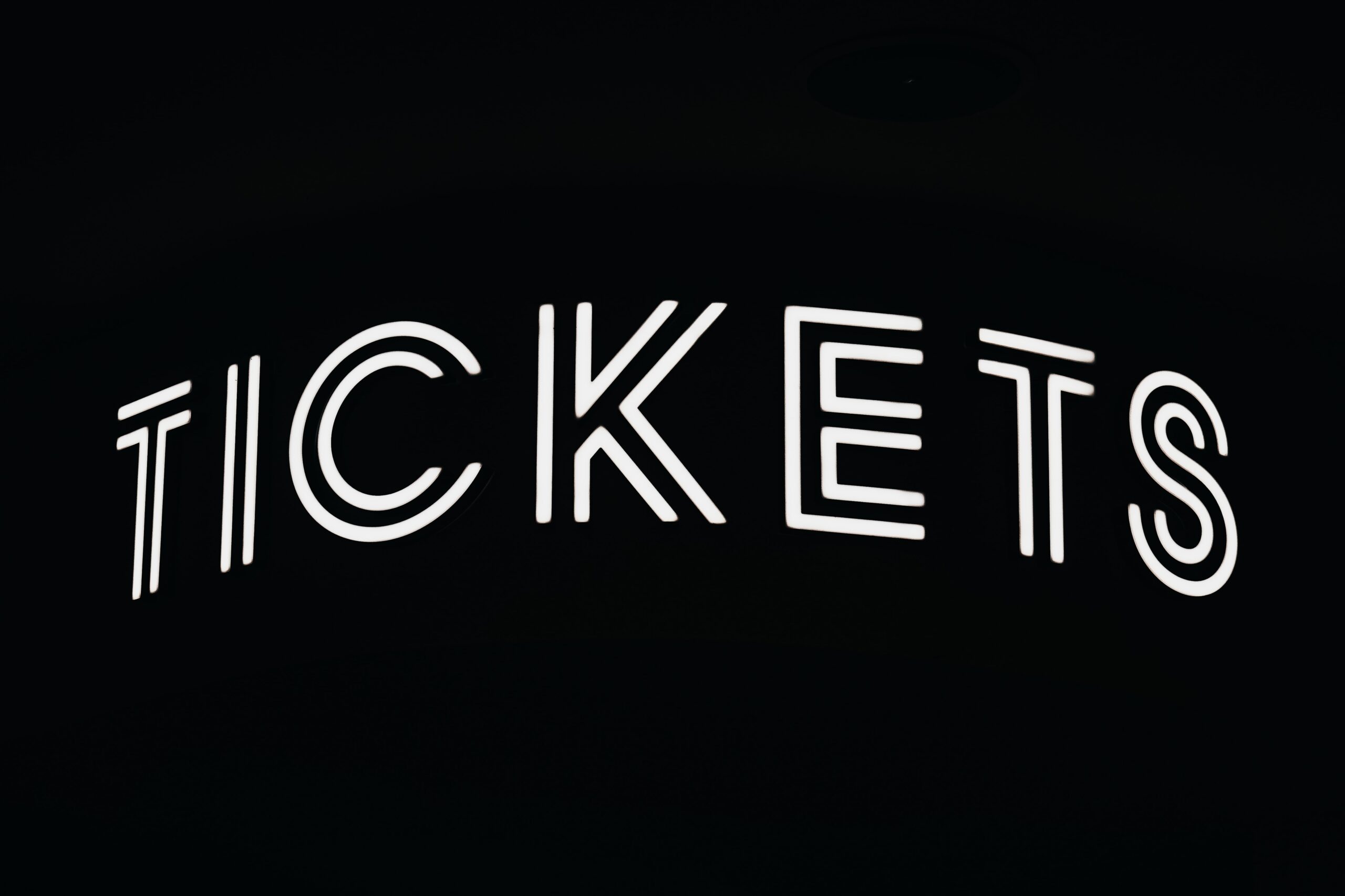Many venues still haven’t grasped the elements involved in ticket selling. Their idea of event ticketing is creating a ticket price and posting it to their website or box office. Their only variation of this approach to ticket pricing is increasing the price at the door.
Event ticketing strategies are a part of event marketing. They both are focused on selling tickets and assuring a financially successful concert or other type of event. Without the right ticketing strategies, no amount of promotion will assure a sold-out event. The right ticketing strategies will not sell tickets unless the event is appropriately marketed. It’s important to understand this relationship as you go about selling tickets to your event.
To drive your event ticketing sales, you need to develop prospects and then make the sale, i.e., getting the prospects to buy tickets to your events.
Successful Event Ticketing Tactics Have Data to Support Them
What successful ticket selling tactics involve is available to those who do the research. Knowing what to do and doing it are two different things. Many smaller venues don’t have the resources for do either. They are hard at work at running the venue, handling multiple roles.
What follows are is another post on ticket selling tactics that work based on consumer research.
Ticket Selling Tactics That Work
It’s difficult trying to capture the event ticketing strategies and event promotion strategies that go into ticket selling in one post. Research and analytics will play a big role in both ticket price setting, types of tickets you will use, and how and when you will market them.
 Event Ticketing Marketing Begins with Setting the Right Price
Event Ticketing Marketing Begins with Setting the Right Price
There are many approaches to setting the price for your event’s tickets. If you are like most venues, you want to make sure your pricing strategy pays for all expenses as well as makes a profit for it. While the various approached to pricing ticket sales is a blog post itself, the fundamental approach involves three key points.
-
- Determining ALL the costs involved and your Break-Event Point. Once you know that, you will need to determine your projected ticket sales. Dividing your expenses by the number of tickets you hope to sell will provide you with the average ticket price needed to break event. Of course, you will want to add a profit margin to your break-even ticket price to make the event worthwhile financially. Many venues that have significant food and beverage facilities will price their tickets to pay for the performance portion of the event and make their profit on selling food and beverages during the event.
- What are ticket prices for similar events? Researching other events in markets similar to yours may provide you a good idea of the pricing and attendance at other similar events. If you have the break-even point calculated, then you have likely locked in the performers for your ticketed event. Obtaining the box office information for the headliner can also help you with ticket pricing and estimated sales. Some performer’s information can be found on national databases such as Pollstar that provide venue capacity, percent sold and average ticket price for specific artists. A good entertainment booking agency has all of this information at their fingertips.
Another simple solution is to call one or more venues where your headliner has recently performed and ask them for information about the draw and average ticket price. Be prepared to share your information back to them if they have interest in your past performers. Start relationships with other similar venues to share information that can help all involved.
-
- Research events near your venue which might compete against your event. You need to ask yourself the question. Why would people choose to come to my event, instead of a competitor event? Your competition may not be a similar event.
We recently had a client book a major concert with a venue capacity of 4,000 on a Friday night here in Texas. If you have event seen “Friday Night Lights,” you know that Friday night high school football is a passion for people, especially in rural settings. On top of that, the Friday night they selected for their concert happened to have all the area high school schools playing at home that night. It gets worse. It just happened that this was homecoming weekend for many of the high school football games taking place that night.
The result was a financial disaster. Even with nationally known entertainment, selling tickets proved to be very difficult. The result was less than a thousand tickets sold with a break-even point of 2,000 tickets at this venue. There are just some things you can’t compete against. One of them is Friday night high school football in Texas.
When it comes to setting ticket prices, your costs and break-even point is more about educating you, the event organizer, than it is about setting the actual ticket prices. That’s because any product or service, including selling tickets is about “what the market will bear” and “what the competition charges.” That means you should set your event ticketing pricing strategy at what your research or past experiences has taught you about what your customers are willing to pay, not based on your costs.
No matter what your break-even price point is, you can’t charge more than the market will bear. Many big companies have had to drop product lines because they couldn’t make any money with it because their costs were more than consumers were willing to pay for the product.

The same goes for your competition. If another venue with similar acts in your market is selling tickets for X dollars, how do you sell tickets for significantly higher prices for the same level of entertainment? Unless you can differentiate your event by adding more value, e.g., free parking, two drinks included, merchandise included, better venue, etc., you will have a really difficult time convincing ticketing prospects as to why they should pay more for a similar experience. In essence, your competition has set your ticket price.
While you should absolutely understand your break event point, using that to set your event ticketing prices will have two potential outcomes.
-
-
- You left a lot of money on the table, because your prospective ticketing customers were willing to pay a lot more for the event.
- You lost money because your break-even, plus profit event ticketing pricing strategy meant your ticketing prices were higher than ticketing prospects were willing to bear for your event. Your competition also plays a role here.
-
Understanding the issues that go into ticket selling and pricing is fundamental to successful events. If you don’t have a strong knowledge of what goes into event ticketing strategies, you should either not hold events or have a ticketing partner that does.
That’s where a partner like TSE Entertainment is invaluable. As a full-service entertainment agency, TSE has been booking entertainment since 1975. We bring those 47 years of entertainment experience and knowledge to our ticket selling service. You get more than a ticketing service when TSE is involved in helping your sell tickets. You get TSE’s experience an know how in booking, producing, marketing events, and ticket selling.
Related Posts:
Online Ticket Sales: Dynamic Ticket Pricing Strategy





